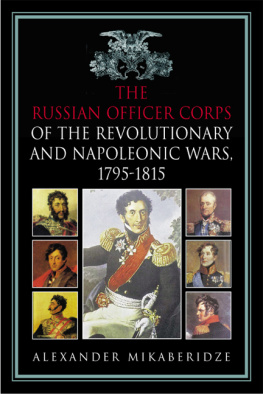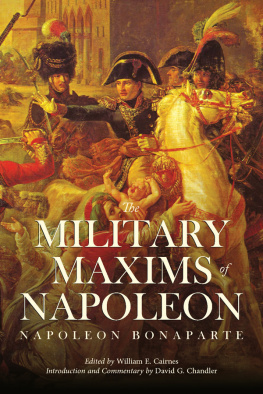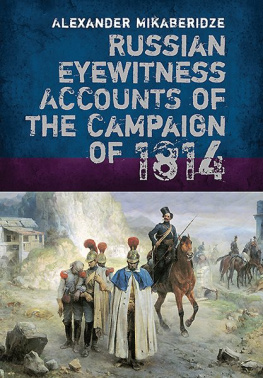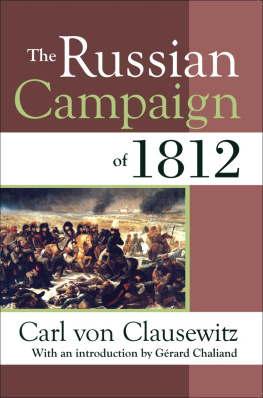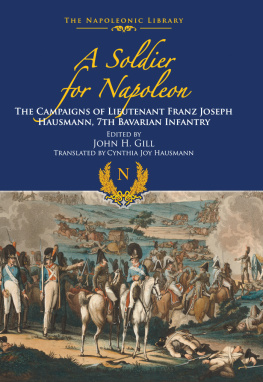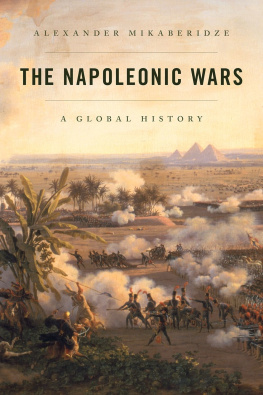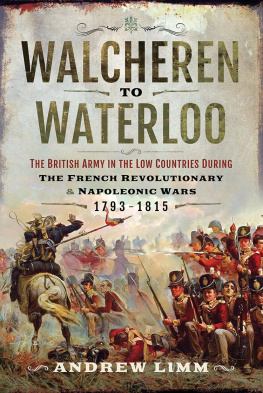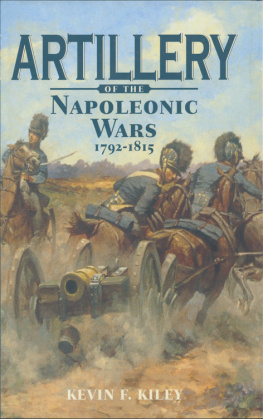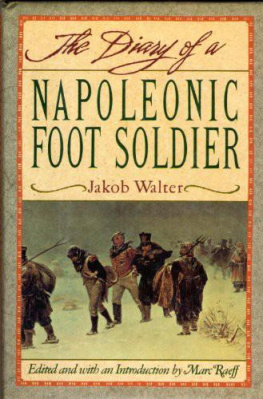Also by Alexander Mikaberidze
Lion of the Russian Army:
Life and Career of General Peter Bagration
2005 by Alexander Mikaberidze
All rights reserved. No part of this publication may be reproduced, stored in a retrieval system, or transmitted, in any form or by any means, electronic, mechanical, photocopying, recording, or otherwise, without the prior written permission of the publisher. Printed in the United States of America.
Cataloging-in-Publication Data is available from the Library of Congress.
First Savas Beatie edition 2005
ISBN 10: 1-932714-02-2
ISBN 13: 978-1-932714-02-9
eISBN: 978-1-61121-002-6

Published by
Savas Beatie LLC
521 Fifth Avenue, Suite 1700
New York, NY 10175
Editorial Offices:
Savas Beatie LLC
P.O. Box 4527
El Dorado Hills, CA 95762
Phone: 916-941-6896
(E-mail) sales@savasbeatie.com
Savas Beatie titles are available at special discounts for bulk purchases in the United States by corporations, institutions, and other organizations. For more details, please contact Special Sales, P.O. Box 4527, El Dorado Hills, CA 95762, or e-mail your inquires or orders to us at sales@savasbeatie.com, or visit our website at www.savasbeatie.com for additional information.
To my parents,
Levan and Marina Mikaberidze,
who gave up so much for their children
and instilled in them a passion for learning.
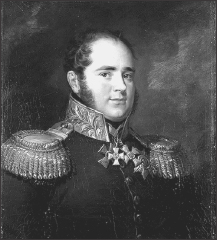
Russian officers: Karl Fedorovich Baggovut
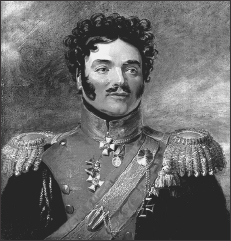
Joseph Kornilovich ORourke
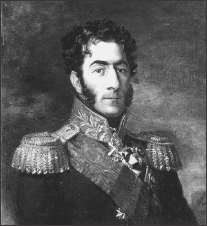
Peter Ivanovich Bagration
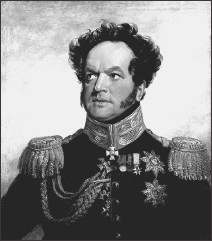
Pavel Vasilievich Golenischev-Kutuzov
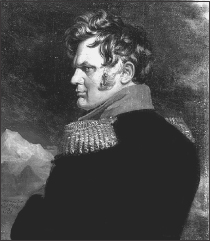
Aleksey Petrovich Ermolov
Introduction
The sun burned brightly on 11 September 1815. Anyone traveling to Vertus, 100 miles from Paris, beheld an awe-inspiring sight: more than 150,000 men dressed in parade uniforms deployed on a vast field near the town. Around noon, the soldiers marched past Emperor Alexander I of Russia and his entourage, thundering shouts of hurrah and playing music. The scene was breathtaking indeed, a triumphant conclusion to the titanic struggle between two opposing worlds and a showcase of Russian military might and success.
Only three years earlier, Europeans watched in suspense as Emperor Napoleon led more than 500,000 men into Russia. However, within a year, the once-mighty Grand Army was destroyed and tens of thousands of its soldiers killed, captured, or frozen to death in the vastness of Russia. After the Russian army emerged victorious from the depths of the East, it marched across the continent into the heart of France. Despite many defeats along the way, on 11 September 1815, few questioned whether the final victory over Napoleon would have been possible without the Russian army and its officers.
When discussing the Russian army during the Age of Napoleon, people often forget that, unlike other European powers, Russia was at war for virtually all of the late 18th and early 19th centuries. The Russian army participated in the seven campaigns against France (1799, 1805, 1806-1807, 1812-1814); three Russo-Turkish Wars (1769-1774, 1787-1791, 1806-1812); the annexation of the Crimea (1783-1784); the Russo-Persian War (1804-1813); two Russo-Swedish Wars (1789-1791, 1808-1809); two partitions of Poland (1792-1794); and annexations of the principalities in Georgia and Northern Caucasus. Therefore, in this study the term Revolutionary and Napoleonic Wars includes all of these military operations.
Many Russian officers rose to prominence during this period. The names of Generals Mikhail Kutuzov, Mikhail Barclay de Tolly, Peter Bagration, Peter Wittgenstein, and many others evoke memories of Russian triumphs, glorious days gone by, numerous battles fought, and victories celebrated. For decades, their names were venerated in Russia. These officers spent the best years of their lives serving in the Russian armies. Some were talented commanders and administrators; others were less gifted leaders and arrogant courtiers. They came from all over the worldAlexander Langeron, Antoine Jomini, and Emmanuel St. Priest from France; Peter Bagration, Ivan Djavakhishvili (Zhevakhov), and Levan Panchulidze from Georgia; Joseph ORourke from Ireland; Mikhail Barclay de Tolly from Scotland; Levin Bennigsen, Peter Wittgenstein, Karl Clausewitz, and others from various German states. Russia embraced them all and, in return, they defended their adopted Motherland. Many paid the ultimate price for the well-being of Russia.

The idea for this volume originated during work on my dissertation at the Institute on Napoleon and the French Revolution at Florida State University. When researching numerous archival materials, I found myself wishing there were dictionaries describing Russian officers similar to the classical studies on the French officer corps by Georges Six and C. Mulli, and on the British officers by John A. Hall. Left on my own, I began gathering biographical details on the Russian senior officers. In late 2002, I contacted Robert Burnham, the editor of the fine Napoleon Series (www.napoleon-series.org), one of the best on-line collections related to the Age of Napoleon. I proposed creating an online dictionary of the Russian officer corps. Robert supported me in this undertaking and, encouraged by the response, I decided to expand the number of biographical sketches and combine them into a single volume. The result you now hold in your hands.
The Russian Officer Corps in the Revolutionary and Napoleonic Wars is divided into two parts. The first section contains information on the development of the Russian officer corps and analytical tables on enlistment, education, social status, and experience of the Russian officers. The second section of this book contains more than 800 biographies of these officers, arranged in alphabetical order. I included biographies of both junior and senior officers. Although some of them, particularly those of lieutenants and captains, at first blush appear unimportant based on their contributions to the war effort, they illustrate the technicalities of the Russian officer corps and in my opinion, help flesh out this study.

This book could not have been completed without the assistance of individuals too numerous to mention. I cannot possibly list everyone, so if you are not named, you know who you are and know that I am in your debt. I will be forever grateful to Dr. Donald D. Horward, who changed my life when he invited me from the faraway Republic of Georgia to study the Age of Napoleon under his direction. It was indeed a dream come true! I am thankful to Darrin McMahon and Samuel Skip Vichness, whose support made it possible for me to complete the manuscript.

